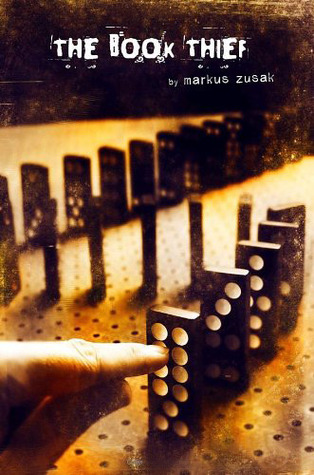
About the Book
The Book Thief is the story of Liesel Meminger, a girl living in Nazi Germany whose foster parents provide refuge for a young Jew, Max Vandenberg, by hiding him in their basement. The novel is narrated by “Death,” characterized not as the usual grim reaper, but a sympathetic guardian of the souls of the deceased. The narrator refers to Liesel as “the book thief” because she steals a handful of books throughout the course of the novel.
About the Author
Marcus Zusak has authored four young adult novels. Born in Sydney Australia in 1975, Zusak’s mother is a native of Germany. His father, a house-painter like one of the main characters in The Book Thief (Hans Hubermann), was born in Austria.
Questions for Discussion
- The Book Thief has won the National Jewish Book Award, and the Sydney Taylor Book Award for best Jewish young adult book of 2006. Yet Liesel, the main character of The Book Thief is not Jewish, and neither are most of the supporting characters. Author Zusak has said that The Book Thief was not intended as a young adult novel. In your opinion, is The Book Thief a Jewish novel? Is it a young adult novel? Explain your conclusions.
- Regarding Liesel’s foster father Hans Hubermann, we are told that “words and writing actually saved his life once” (pg. 64). What were the circumstances of this “salvation?” How do books also save the lives of Liesel and Max? How does Zusak use words and books as tools of salvation throughout the novel? What are the roles of books and reading in the story?
- Reread the description of the book burning (pgs. 118-120), and explore how Zusak describes the book that Liesel steals (pg. 119). How does the author use books as metaphors for Holocaust survivors?
- How does a copy of Hitler’s Mein Kampf save the life of Max Vandenburg? Discuss the irony of this situation and Max’s use of the whitewashed pages of Mein Kampf to create storybooks for Liesel.
- Discuss Hans and Rosa Hubermann, Rudy Steiner and Ilsa Hermann as examples of German citizens during WWII. To what extent are they patriotic Germans? To what extent are they quietly defiant? Are they willing participants or victims of the Third Reich? In your opinion, how typical are their stories? What risks and challenges do they bring upon themselves?
- Resistance to Nazi tyranny is an ongoing theme throughout the novel. Discuss the specific ways that the Hubermann's, Rudy Steiner and Liesel defy the Nazi regime. How effective are these acts—psychologically, morally and politically?
- When recounting Max Vandenburg’s background, the author describes Jews as a people who tend to capitulate to oppression like Max’s dying uncle, “yellow and tranquil” (pg. 188). We are told that in general, “The Jews preferred to simply stand and take things. Take the abuse quietly and then work their way back to the top.” Discuss this point of view. To what extent is it fair and accurate? How does this description make you feel? How does Max match or challenge this characterization?
- Max writes “The Word Shaker” (pgs. 445-450) for Liesel, an allegory about the power of words. How does the story reflect the importance of words in Jewish tradition? Do you agree with Max’s explanation of how the Nazi’s used words to put forward their political actions?
- How does Zusak portray the narrator, Death? How does he use colors to describe what he sees? What does this perspective add to the story? Compare Zusak’s portrait of Death with other personifications, like the Jewish folkloric image of the Angel of Death.
- The Book Thief presents Nazi Germany from a child’s perspective and at the same time uses elements of dark humor and the absurd. How effective do you find this approach?
Suggested Readings
Morris Gleitzman, Once (2005). This novel by an English expatriate living in Australia is a moving, tender and witty novel about a Jewish boy wandering the Polish countryside, hiding from the Nazi’s and collecting stories.
Gunter Grass, The Tin Drum (1959). A classic and touching farce about a three-year-old German boy who, to protest the nightmare of Nazism, refuses to grow. This picaresque novel was considered a turning point in postwar German literature.
Markus Zusak, I am the Messenger (2003). While the plot and setting are not similar to The Book Thief, this earlier novel by Zusak is a unique exploration of meaning, morality and responsibility. It is a story of a young cab driver who foils a bank robbery, then receives coded messages in the form of playing cards and ultimately finds himself helping people in need.
Steven Steinbock, a graduate of the HUC-JIR Rhea Hirsh School of Education, is the author of several books published by the URJ Press.
Explore Jewish Life and Get Inspired
Subscribe for Emails
